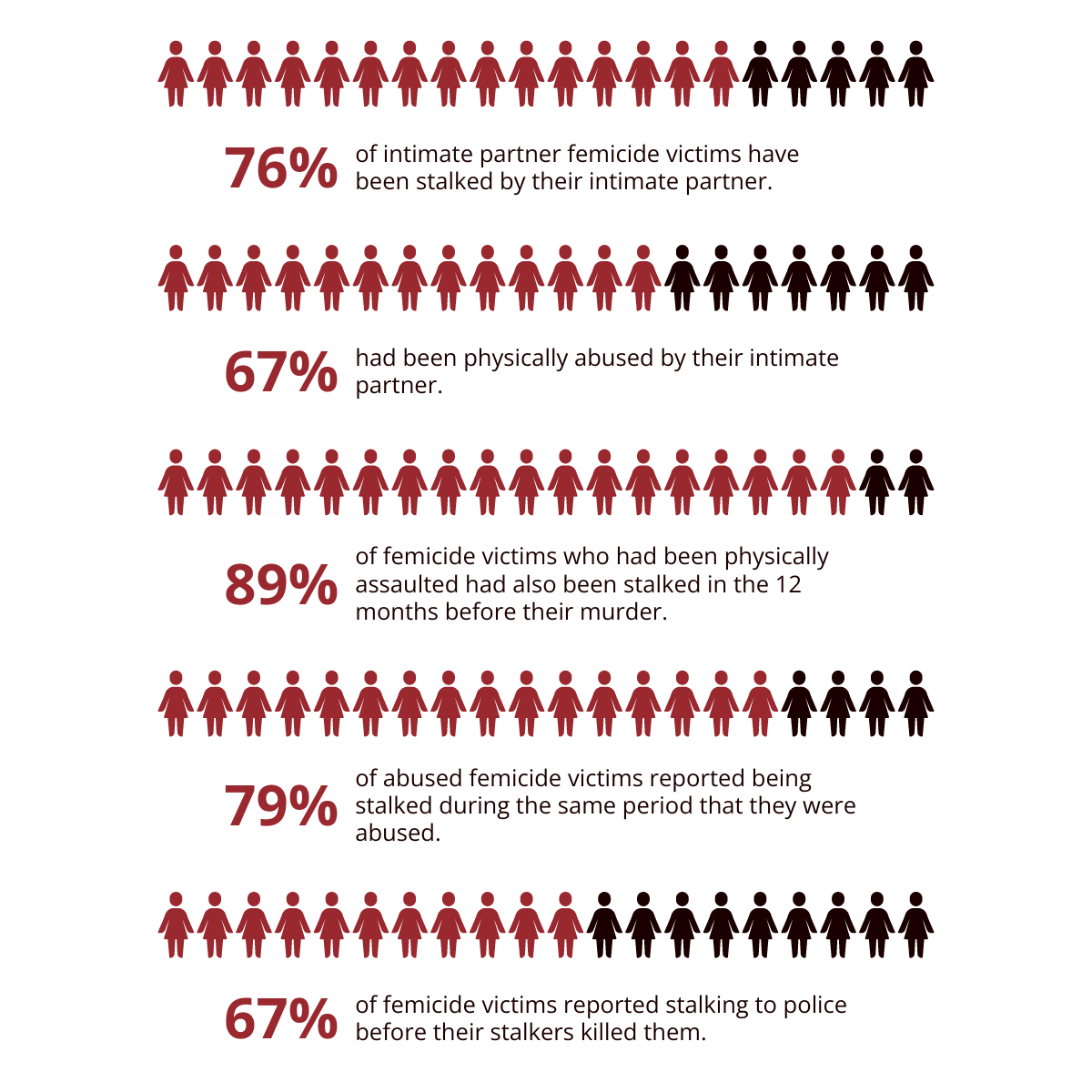
Flowers sent to the office? When will this end?
Imagine coming back from lunch, and flowers are on your desk, with a note that says, “I love you.” Your co-workers gather around, congratulating you and excited for you to receive such a special gift. But what if these flowers had come from an abusive ex-partner, and you know this is a threat?
January is Stalking Awareness Month; we’re urging those around awareness and how to take action to respond to stalking, also known as criminal harassment. BWSS witnesses all too often the many avenues taken by abusive partners to instill fear and control. Here are examples of stalking behaviour listed as per the Stalking Prevention, Awareness, & Resource Center (SPARC):
- Surveillance – the most commonly identified stalking tactic.
- Life invasion – direct entry or through electronic means into the private sphere of victims
- Intimidation – impact of the totality of abusive behaviours such as threats/actual harm
- Interference through sabotage or attack – behaviours affecting reputation, employment and/or physical safety.
These behaviours also include cyberstalking, appearing in locations the victim regularly visits, appearing at their place of employment, or sending unwanted gifts like flowers. What seems like an innocuous gesture forces the victim into isolation as the underlying threat of “I know where you are, I know where you work, and I’m watching you,” making it hard for women to explain to their co-workers why this would be a threat. This is isolation in plain sight.
Stalking has been referred to as homicide in slow motion, where the action or behaviour of stalking can be the precursor to femicide:

Statistics Canada reports show police-reported family violence increased for the fifth consecutive year in 2021, with a total of 127,082 victims. On average, every six days, a woman is killed by an intimate partner, the agency said. It found that criminal harassment was 10 percent higher in 2021 than in the two years prior, while indecent and harassing communications increased by 29 percent since 2019.
Many women, girls, and gender-diverse people who access our services are currently experiencing stalking or have experienced stalking in the past. This is why we address stalking in the context of domestic, intimate partner, and sexualized violence through our risk assessments, safety planning, and wrap-around support to assist survivors in their pursuit of safety. Safety changes everything.
Join us via social media throughout the month of January to learn more about stalking and how you can take action and respond to stalking in your community.
Instagram: @endingviolence
Facebook: @violencestopshere
X: @endingviolence
Website: bwss.org
If you are concerned for yourself or someone else, please call us at 1-855-687-1868.




